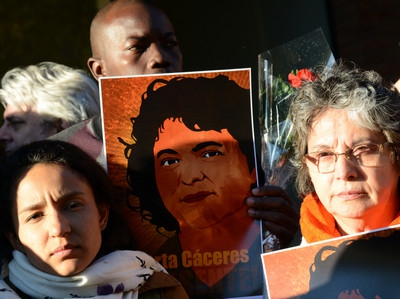“New EU law must avoid abuses like the one my family experienced“
In March 2016, Bertha Càceres was shot dead in her home in La Esperanza (Honduras) because of the prominent role she played in the fight of the indigenous Honduran Lenca people to protect their land from a hydroelectric dam project that would have deprived them of their territory and heritage. The investment, led by a consortium of international funders, had been opposed by the Lenca people since its inception and was violently and illegally carried out with the support of the Honduran government. The company responsible for the project, in fact, had ignored international human rights standards and failed to consult indigenous communities, while resorting to fatal violence when met with opposition.
Yesterday, Berta Càceres’s daughter, Bertha Zùniga Càceres, Executive Director of COPINH, wrote to European Commissioners, Thierry Breton (Commissioner for the Internal Market) and Didier Reynders (Commissioner for Justice) on the upcoming Sustainable Corporate Governance directive. She asked them “to ensure that the legislation is robust and effective, in order to prevent brutal corporate human rights abuses, like what my family have experienced.”
The struggle of the Lenca people, of Bertha and her daughter, is only one example of the daily struggle of indigenous and peasant communities to protect land, water sources, forests and our human family from the negative impacts of corporate activities. The upcoming Sustainable Corporate Governance proposal could be a game-changer for communities faced with corporate abuse worldwide. For that to happen, the law must ensure strong due diligence obligations, consultation with local communities, protections from retaliation and strong provisions on access to remedy and justice.
The Sustainable Corporate Governance Directive, expected to be tabled by the European Commission in December, will contain provisions on mandatory human rights and environmental due diligence for companies based and operating in Europe. However, it is unclear to what extend the law will effectively address the obstacles communities and indigenous people face in accessing justice for harm caused by business activities.
Bertha Zùniga’s letter comes after human rights and environmental defenders Ester Kiobel and Saeeda Khatoon wrote to Commissioners Reynders and Breton to ask for the upcoming European legislative proposal to include strong provisions on access to justice for those affected by corporate abuse. We hope their voices, speaking also on behalf of many communities, will be heard.

